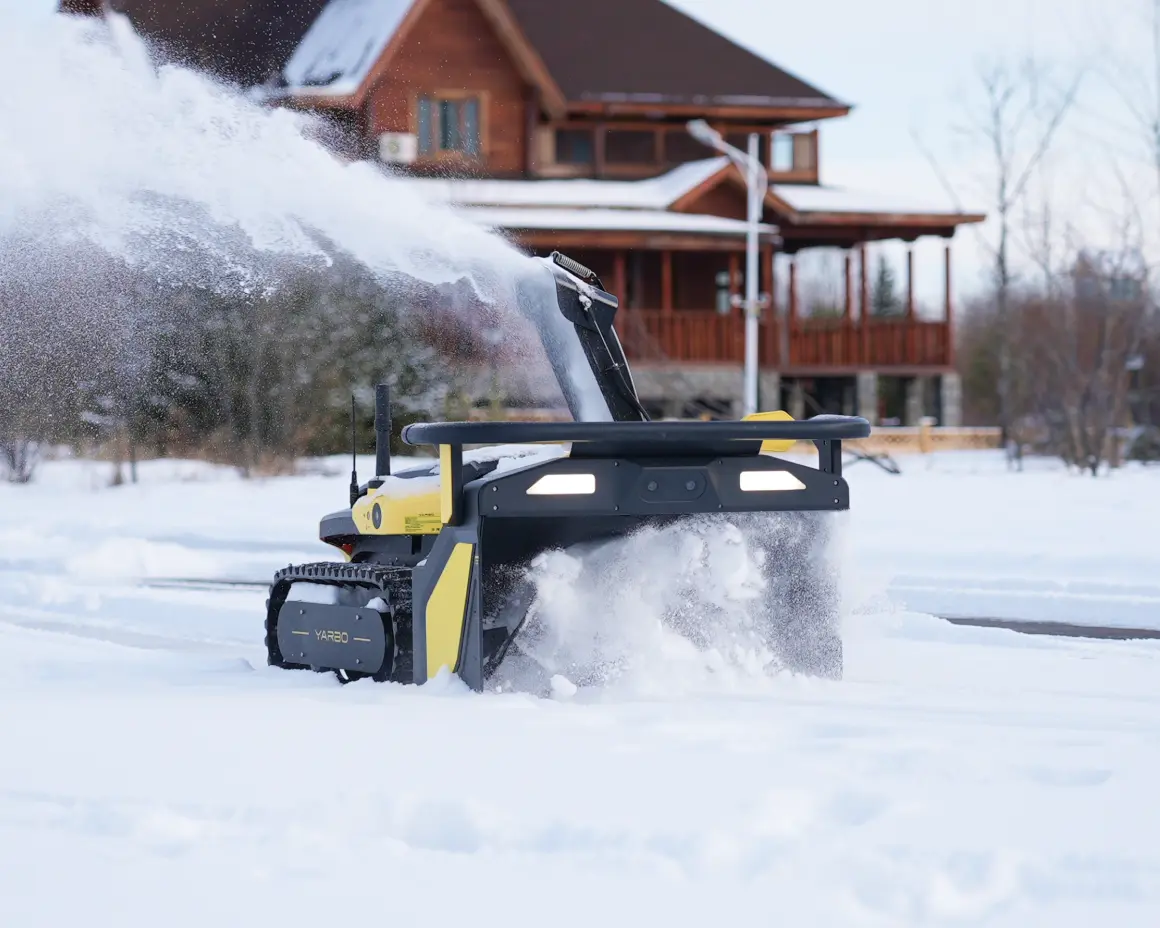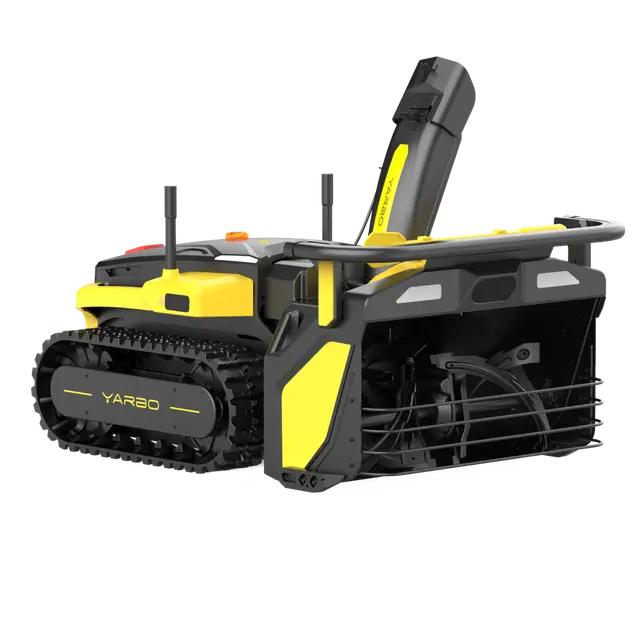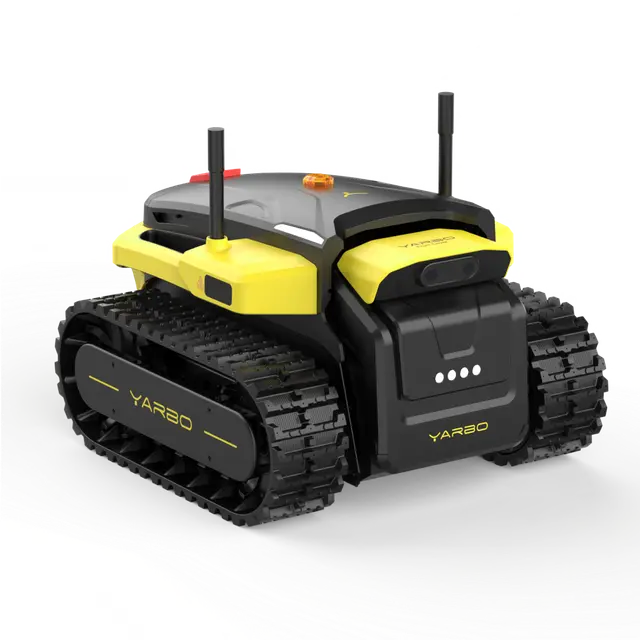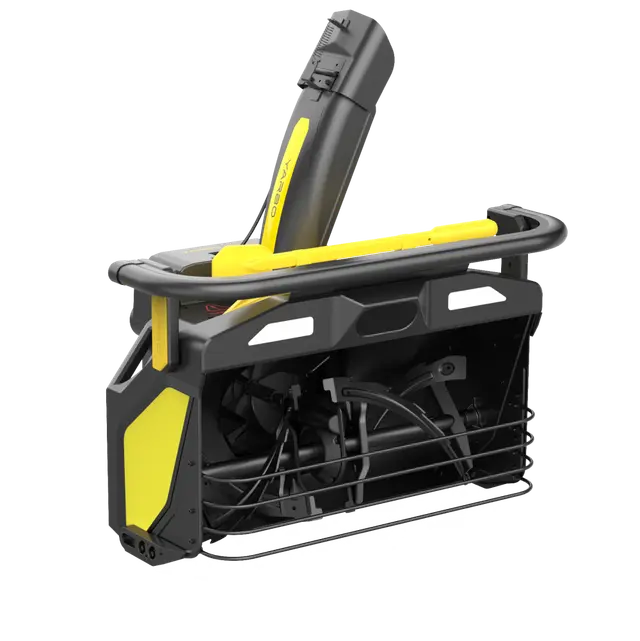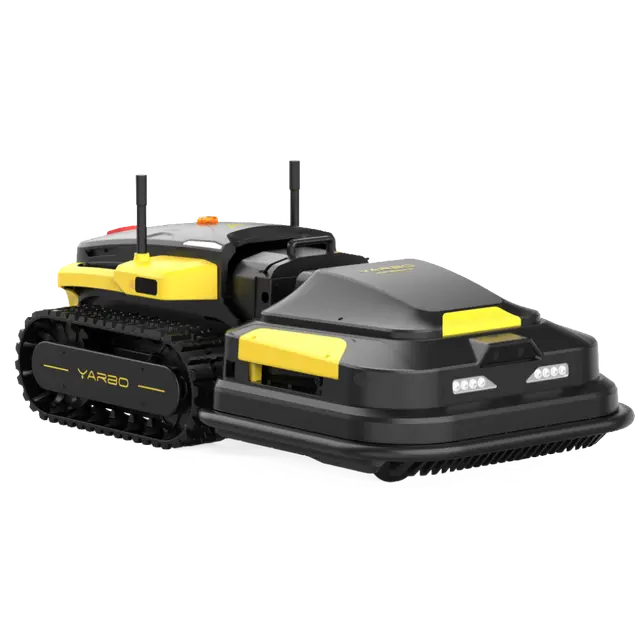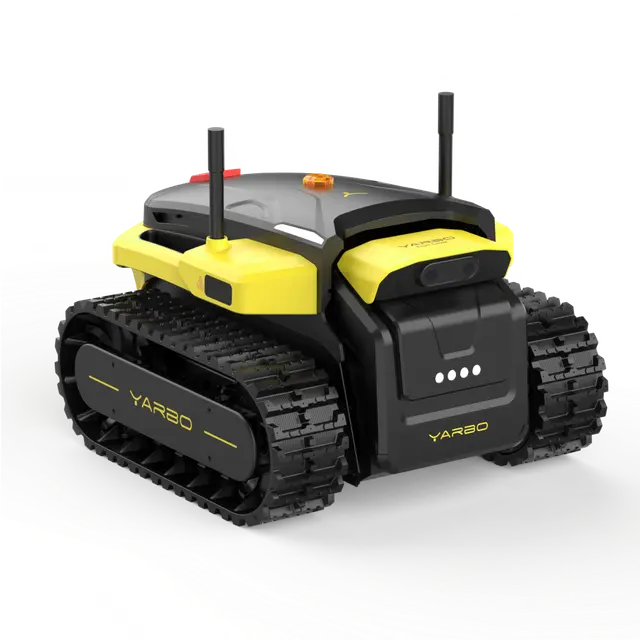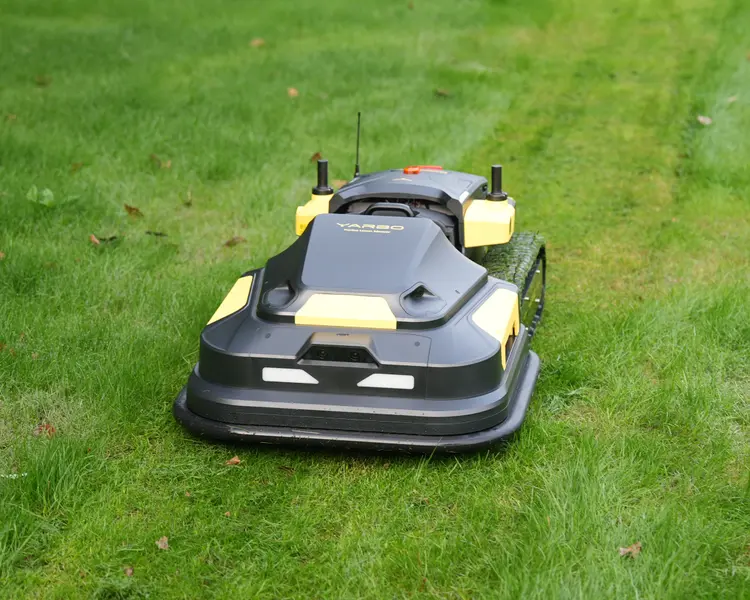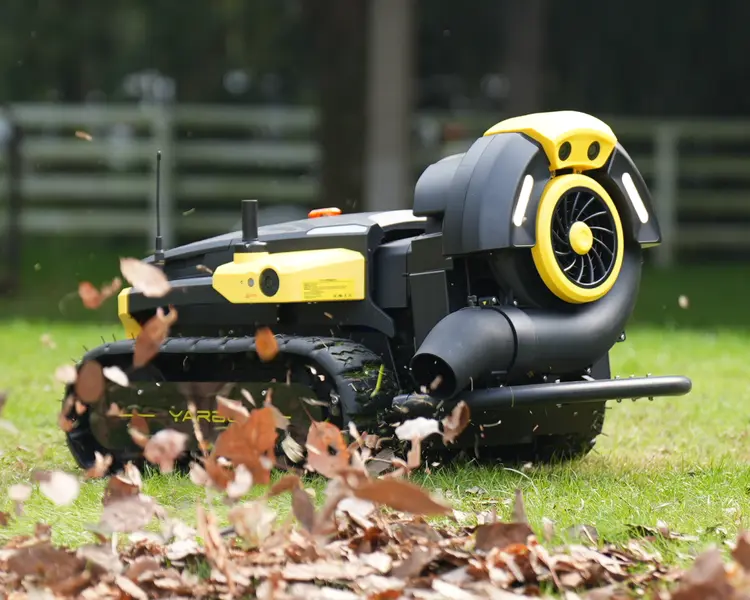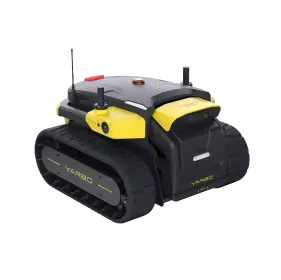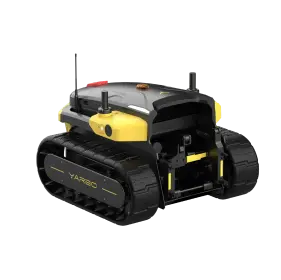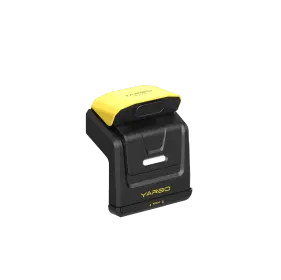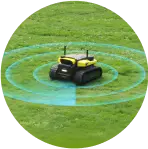Maintaining a beautiful lawn comes at a cost, whether you mow it yourself with traditional tools or invest in a lawn mowing robot. Many homeowners often wonder which option is truly cost-effective in the long run. Beyond the upfront price, factors such as time, effort, equipment maintenance, energy use, and even hidden costs all play a role in deciding between a lawn mowing robot and manual lawn care.
In this guide, we’ll break down the real costs, highlight real-world use cases, and show how advanced solutions like Yarbo can save time, money, and effort while delivering a consistently well-maintained lawn.
Table of Contents:
Breaking Down Manual Lawn Care Costs
Manual lawn care seems inexpensive at first, but the hidden costs quickly add up.
1. Manual Lawn Care Equipment Costs
To maintain your yard manually, you’ll need tools such as a push mower or gas-powered mower, string trimmer, and hedge clippers. A reliable mower alone can cost between $250 and $100, while professional-grade models run even higher.
In addition to the mower, you'll need a trimmer, rake, and potentially a leaf blower, adding another $100 to $300 to your initial investment.
All in all you expect to spend roughly $400-$1500 initailly to get all the required equiptment to get started with manual lawn care.
2. Ongoing Expenses
Manual tools are far from maintenance-free.
-
Gas mowers require constant fuel, spark plugs, oil, and regular blade sharpening. These recurring expenses can add up to $150–$250 per year, depending on usage.
-
Periodic blade sharpening
-
Oil changes
-
Replacing worn-out parts could cost hundreds annually.
And let's not forget replacing tools entirely after years of wear and tear.
3. Time Investment
One of the biggest costs of manual lawn care is your time. For an average suburban lawn, homeowners spend 30–60 minutes per mow, totaling 30+ hours per season. This time could be spent with family, pursuing hobbies, or relaxing instead of pushing a mower.
4. Professional Services
If you outsource lawn mowing to a landscaping service, costs rise significantly. Professional mowing services average $40–$80 per visit, which can total $1,200–$2,500 annually depending on frequency and yard size.
If you are not doing it yourself, you are probably hiring someone for your lawn care, which can add up to being hundreds of dollars/years based on your needs, location as well as your lawn size.
Real-world example: A homeowner with a ¼-acre lawn who hires a landscaper every two weeks pays around $1,500 per year just for mowing services—not including fertilization, trimming, or aeration.
Exploring the Costs of Lawn Mowing Robot
Lawn mowing robots represent an upfront investment, but they are designed for long-term savings and convenience.
-
Initial Investment
Robotic lawn mowers typically cost between $1000 and $7,000. High-end models with advanced features like GPS navigation and smart integration tend to be pricier.
However, this one-time investment often replaces several traditional tools.

-
Maintenance Costs
Robotic mowers are designed for efficiency. Maintenance is minimal
-
occasional software updates
-
blade replacements ($20 to $50 annually)
-
battery replacements every 3-5 years.
Compared to the constant upkeep of manual equipment, robots are relatively hands-off, sounds like a dream.
-
Energy Efficiency and Costs Electric-powered robotic mowers are incredibly energy-efficient, costing mere pennies per hour to run. When compared to gas-powered mowers’ fuel costs, robotic mowers are significantly cheaper to operate over time.

Cost of Robotic Lawn Mower Vs. Maunal Lawn Care
| Factor | Manual Lawn Care | Lawn Mowing Robot |
| Upfront Equipment | $250–$600 (basic mower) | $1,200–$3,000 |
| Annual Maintenance | $150–$250 | $50–$100 |
| Fuel/Electricity | $100–$200 (gas) | $10–$20 (electric) |
| Time Investment | 30+ hours per year | Nearly zero |
| Professional Services | $1,200–$2,500 annually | Not needed |
| Longevity | 5–7 years average | 8–10 years average |
Over a 5-year period, the costs show a clear trend:
-
Manual lawn care with a gas mower may cost $2,000–$3,500 including maintenance and fuel.
-
Professional services could exceed $10,000.
-
A lawn mowing robot like Yarbo costs around $1,500–$3,000 upfront but pays for itself within 2–3 years, with much lower running costs.
Factors to Consider Before Investing
If you have a small, simple yard, manual tools might suffice. For larger or complex lawns, robotic mowers shine with their ability to navigate slopes and obstacles.
While the upfront cost of robotic lawn mower is higher, consider how much you value convenience, time savings, and eco-friendliness when weighing your decision.
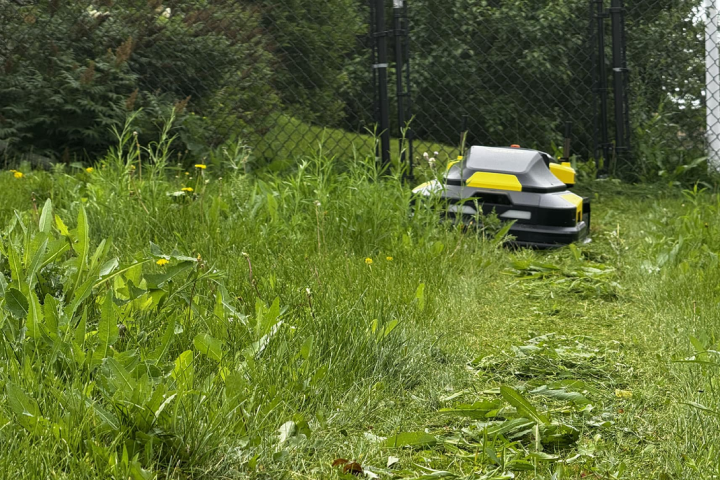
The Convenience Factor in Lawn Care
Imagine setting a schedule on your phone, and your lawn is perfectly mowed without lifting a finger. That’s the convenience robotic mowers bring. Advanced models even adapt to your lawn’s growth patterns, ensuring consistent care without human intervention.

Manual mowing demands physical effort and time. Hot summers, sudden rain, or weekend plans can disrupt your mowing schedule, leading to an overgrown lawn. Robotic mowers operate rain or shine, ensuring uninterrupted care.
Environmental Considerations
Gas mowers emit carbon dioxide and contribute to air and noise pollution. In fact, one hour of mowing with a gas-powered mower can produce as much pollution as driving a car for 100 miles!
Robotic mowers, on the other hand, run on electricity, reducing the overall runing cost of robotic lawn mower making them eco-friendly. Their quiet operation also minimizes noise pollution, keeping your neighborhood peaceful.
Longevity and Value
Manual tools can last several years with proper care but require frequent replacements. Robotic mowers, with warranties typically spanning 2-5 years, are built to last and often outlive their manual counterparts.
Over a decade, the total cost of owning and maintaining a robotic mower may equal or even undercut the cumulative expenses of manual tools.
The Impact on Lifestyle
A robotic mower gives you back hours of your life. Use this time for hobbies, family, or simply relaxing. Automation turns lawn care from a chore into an afterthought.

Robots maintain a consistent cut, keeping your lawn pristine. Manual mowing, influenced by human effort and mood, often results in uneven patches or missed spots.
Real-World Use Cases For Lawn Mowers
-
Busy Professionals: A family with two working parents in suburban Texas switched from manual mowing to a Yarbo robot. They reported saving $2,200 in professional lawn care fees annually while enjoying perfectly maintained grass.
-
Elderly Homeowners: Retirees in Florida replaced their gas mower with a robot to reduce physical strain. The result was improved lawn health and more free time to enjoy their retirement.
-
Tech Enthusiasts: Homeowners who value smart home integration love Yarbo’s advanced features such as GPS mapping, obstacle detection, and multi-functional modules (snow removal, leaf blowing, and more).
Why Yarbo Is the Smarter Choice?
While many robotic mowers focus only on cutting grass, Yarbo stands apart as a modular yard robot. Beyond mowing, it can handle snow removal, leaf blowing, and more—making it a year-round investment.
-
Modular Design: Swap out mowing for snow removal in winter.
-
Smart Technology: GPS, AI, and obstacle detection ensure precision.
-
Durability: Built for large and complex yards.
-
Cost Efficiency: Reduces the need for multiple machines and services.
Conclusion
When comparing the true cost of manual lawn care and a lawn mowing robot, the long-term savings, convenience, and lifestyle benefits clearly favor robotic solutions.
-
Manual mowing: lower upfront cost but higher recurring expenses and lost time.
-
Professional services: convenient but extremely expensive over time.
-
Lawn mowing robots like Yarbo cost higher upfront cost but lowest lifetime expense, plus unmatched convenience and advanced features.
If you’re ready to save money, protect your weekends, and enjoy a perfectly manicured lawn, investing in a lawn mowing robot is the smarter choice—especially when you choose Yarbo, designed for the modern homeowner.
FAQs
1. Are robotic lawn mowers worth the initial investment?
Yes, especially for those seeking time savings, consistent lawn care, and eco-friendly solutions. Over time, the savings on contractor fees and fuel costs make them a smart investment.
2. How do robotic lawn mowers handle uneven terrains?
Advanced models are equipped with sensors and powerful wheels to navigate slopes, obstacles, and complex layouts with ease.
3. Do robotic mowers require supervision?
No. Once programmed, they operate independently, automatically returning to their charging stations when needed.
4. What happens if it rains while a robotic mower is working?
Most robotic mowers are weather-resistant and can operate in light rain, but it’s advisable to check the manufacturer’s guidelines for best results.
5. How much maintenance does a robotic mower need?
Very minimal—typically just occasional blade replacements, software updates, and basic battery care.
6. What makes Yarbo different from other robotic mowers?
Unlike standard robotic lawn mowers that only cut grass, Yarbo is a 3-in-1 modular yard robot. It mows the lawn, blows snow, and clears leaves—all using the same base unit with different attachments. This means one machine can handle year-round property care, replacing multiple pieces of equipment and saving homeowners money in the long run.


-7.png?w=1001&h=621)
 Private group · 33.0K members
Private group · 33.0K members

